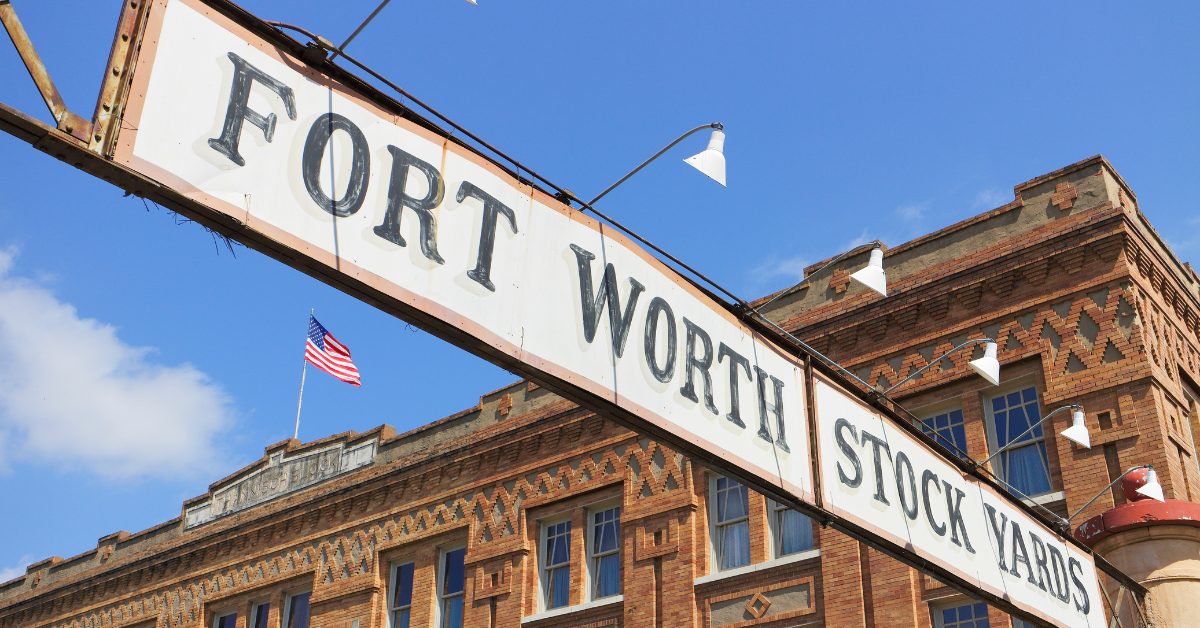Fort Worth, located in northern Texas, holds a dual image for Japanese people: a “cowboy town” and a “modern city.” This article explains, in a way that foreigners can easily understand, how Japanese people view Fort Worth through its history, culture, and sports.
The First Impression Japanese People Have of Fort Worth
When hearing the name Fort Worth, many Japanese immediately think of it as a “Western town.” The Stockyards district is especially symbolic, where tourists can see cowboys and cattle drives. This scene strongly resembles the world of Western films and gives Japanese visitors a chance to experience what they have long imagined as “American-ness.”
However, this impression does not fully reflect reality. The actual Fort Worth has undergone urban development with modern skyscrapers and cultural facilities. As a result, many Japanese visitors are surprised, often saying it was “more metropolitan than expected.”
Japanese Impressions of History and Tradition
Fort Worth developed as a military outpost in the 19th century and later became known as a hub for cattle transport. This background gave rise to its nickname “Cowtown,” which is a clear and memorable identity even for Japanese people.
The city leaves strong impressions through cowboy culture and rodeos, activities rarely found in Japan.
| What Japanese Imagine | What You Can Actually Experience in Fort Worth |
|---|---|
| A Western movie setting | Cowboy shows at the Stockyards |
| A city of cattle and ranches | Cattle drives and ranch events |
| Music and dance | Country music concerts and dance halls |
In this way, Fort Worth is remembered by Japanese as a “city where history and tradition can be experienced.”
Fort Worth as a Modern City
At the same time, Fort Worth’s modern urban side gives Japanese people a sense of unexpected sophistication. As part of the Dallas–Fort Worth area, it has high-rise buildings and is a hub of economic activity.
Points especially valued by Japanese include:
- Rich artistic and cultural facilities
- Well-developed educational institutions
- A relatively safe living environment
Notably, the Kimbell Art Museum and the Modern Art Museum of Fort Worth are very popular among Japanese art lovers. In addition, institutions such as Texas Christian University reinforce the city’s identity as an educational hub.
Fort Worth as a Sports City
Fort Worth also has a strong presence in sports. For Japanese people, sports such as baseball and American football are closely associated with the U.S., and Fort Worth provides access to many of these.
Nearby, world-famous teams such as the Dallas Cowboys (NFL) and the Texas Rangers (MLB) make it easy to enjoy professional sports. For Japanese visitors, attending a Major League Baseball game is a dreamlike experience, leaving them impressed by the scale and energy.
Within Fort Worth itself, college sports are especially popular. The Texas Christian University football team, the Horned Frogs, enjoys overwhelming local support. Compared with Japanese university sports, the size and enthusiasm are extraordinary, and the sight of stadiums filled with fans leaves a powerful impression.
In addition, golf and tennis tournaments are also held in the city, making it a destination for sports tourism. Thus, the Japanese image of Fort Worth is expanding from “cowboy town” to also being a “city where American sports culture can be deeply experienced.”
Japanese Views on Everyday Life in Fort Worth
Japanese people who live or stay long-term in Fort Worth have different impressions from short-term tourists.
Strengths
- Lower cost of living compared to many U.S. cities
- A balance between urban convenience and natural surroundings
- Proximity to Dallas–Fort Worth International Airport, offering excellent transportation access
Challenges
- Car dependency due to limited public transport
- Severe summer heat
- Limited access to Japanese food and culture
Considering these factors, Fort Worth offers both attractive conveniences and challenges for Japanese residents.
Conclusion
For Japanese people, Fort Worth is both a “city to experience the traditions of the American West” and a “modern cultural hub.” Its sports scene further strengthens this multifaceted image, allowing people to enjoy everything from professional leagues to vibrant college competitions.
Thus, Fort Worth is not seen one-dimensionally, but as a city with multiple layers of identity. For foreigners, the best way to understand the Japanese perspective is to describe it as “a city where cowboy culture coexists with modern urban life, offering sports, arts, and a variety of cultural experiences.”
Ultimately, Fort Worth is, in the eyes of Japanese people, a place where past and present intersect, and where each visit brings new discoveries.






